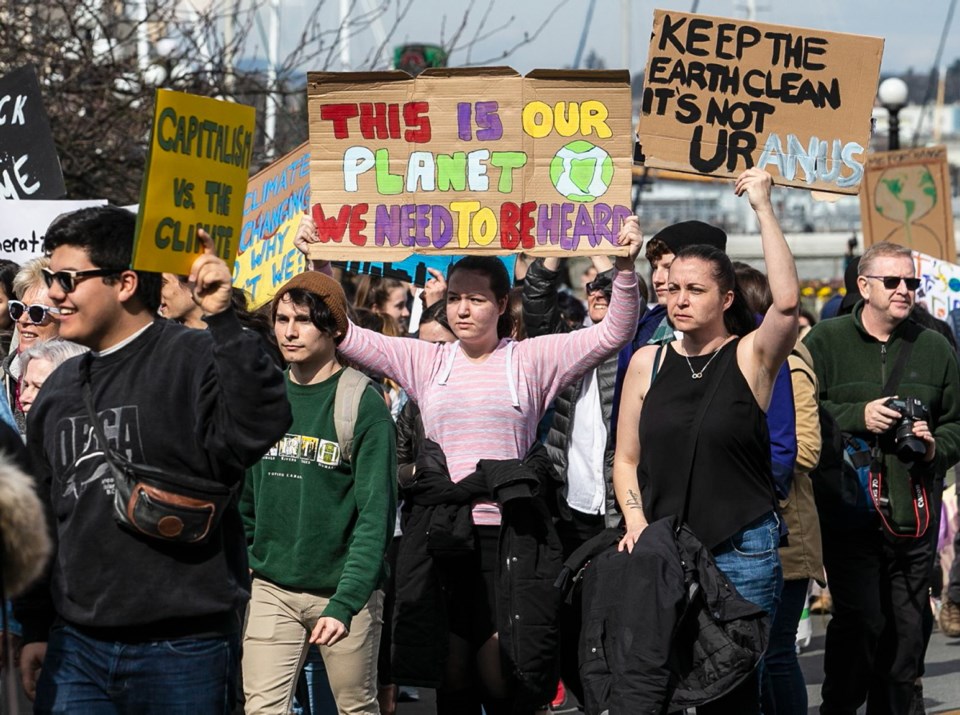A commentary. David Anderson is Canada’s former environment minister; Roy Brooke is an executive in the not-for-profit sector.
Faced with serious illness, most of us want trained and qualified specialists to provide a diagnosis and treatment. Few would follow contradictory advice from those without medical training or experience.
What is true for a medical crisis is also true for a planetary crisis: The declining natural health of our planet demands that we follow the best available expert advice and discard policies based on wishful thinking or ignorance.
Human activity, scientists advise, is now the dominant influence on the planet’s climate and ecology. Our collective actions are destroying the very ecosystems and biological diversity upon which our lives depend.
The Intergovernmental Science-Policy Platform on Biodiversity and Ecosystem Services Biodiversity, for example, says that the diversity of species and ecosystems is declining many times faster than at any previous time in human history. Top scientists convened by the United Nations say we have but a few years to halt the trend toward even more devastating impacts of climate change.
Our experience in Canada and around the world shows us that floods, drought, fires, glacial degradation, rising sea levels, and other climate-driven impacts are here now and on the increase.
Like it or not, the world as we know it is ill.
Recognizing the problem outlined by climate scientists is obviously the critical first step to addressing it. The second is to determine and implement effective responses.
Here, as with the impact of humans on climate change, there is strong expert consensus.
According to top global economists, putting a price on carbon entering the atmosphere through a carbon levy must be an essential part of any realistic plan to reducing carbon emissions. It is also the economic tool least likely to damage the global economy and therefore our quality of life.
Authoritative economic studies are numerous.
A 2017 commission on carbon prices led by Nobel Laureate Joseph Stiglitz and economic specialist Lord Nicholas Stern brought together leading economists from developing and developed countries. They concluded that meeting climate goals in a cost-effective way while still fostering economic growth requires a price on carbon emissions.
Nobel Laureate William Nordhaus finds that carbon emission charges are far more effective in lowering carbon emissions than direct government controls. Not one, but all, living former chairs of the U.S. Federal Reserve have come to the same conclusion.
Moreover, experts in the world’s leading economic organizations also find in favour of carbon pricing.
The Organization for Economic Cooperation and Development, for example, states that carbon pricing will increase resource efficiency, boost investment in clean energy and low-emission goods and services, and facilitate a gradual low-carbon transition.
The view from Canadian business is similar. As examples, the Canadian Chamber of Commerce has endorsed the policy of putting a price on carbon since 2011.
The Royal Bank of Canada has concluded that pricing carbon emissions is one of the most effective ways to reduce carbon emissions. The Mining Association of Canada agrees.
British Columbia implemented a carbon levy in 2008. The amount was modest, but it worked: since it was put in place, B.C. has outpaced most other provinces in both economic growth and emissions reductions.
Economists also point out that carbon pricing effectively harnesses business ingenuity and market forces to achieve carbon reductions. Lord Stern was clear: “Carbon pricing is a pro-market action, and those who oppose it are anti-markets.”
For some issues and challenges, there is a need, and time, to engage in lengthy debate.
Not so for carbon pricing. We have debated for the past 30 years, throughout which emissions have continued to rise.
Now, we have strong scientific consensus on the problem; clarity from economists on solutions; and, abundant practical experience validating both. Each one of us must now show the policy direction we want our political leaders to take.
Canadians must choose candidates in the 2019 federal election who not only understand climate change and talk about it, but who also commit to serious action.
This means rejecting outright any candidate peddling quackery, fake miracle cures or amateurish half measures that suggest there can be an effective plan to combat climate change without a price on carbon.
Our global patient and only home needs effective interventions.
Climate change strategies that include carbon emission pricing must be delayed no longer.



